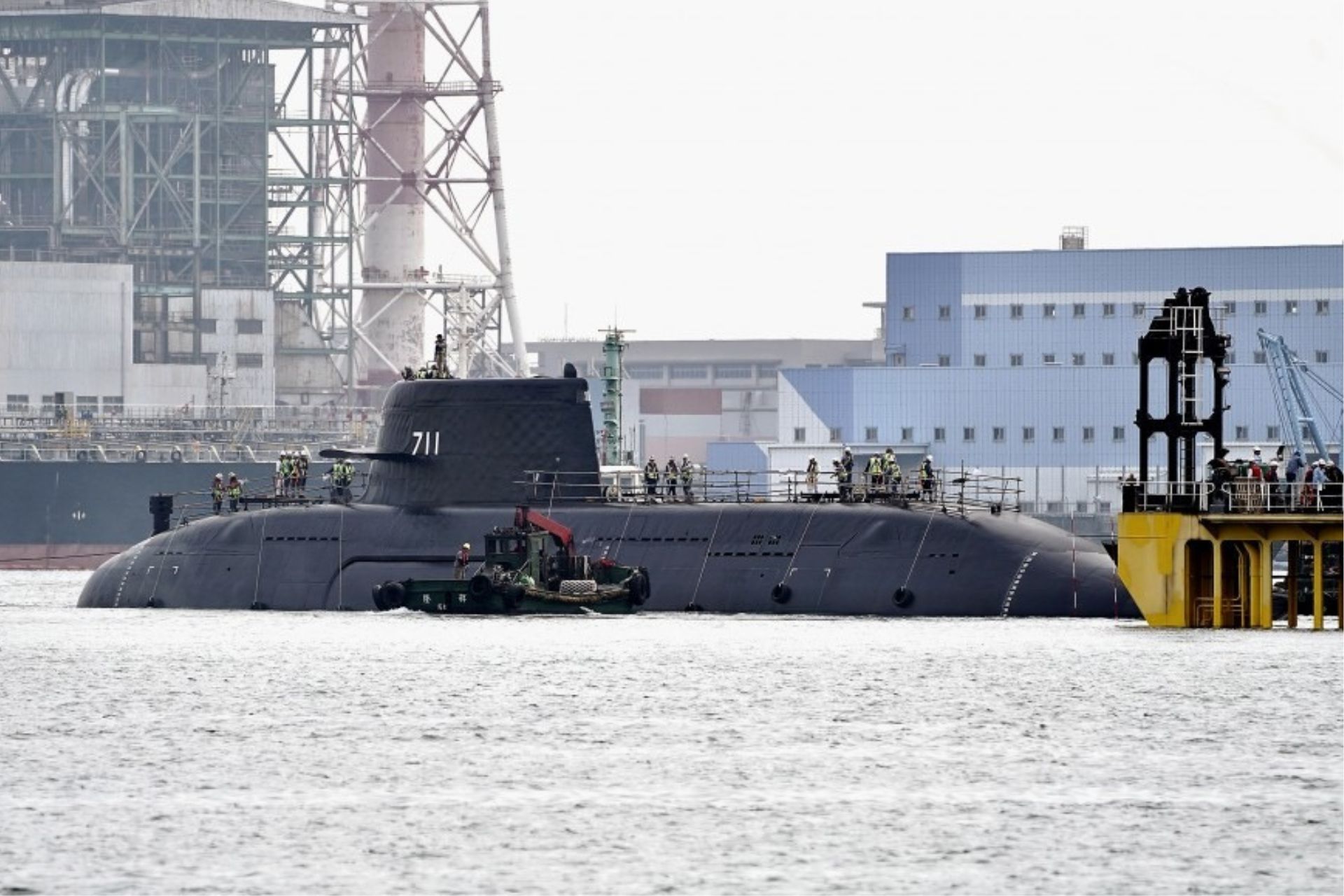Breaking News
Taiwan's $8.9 Billion Submarine Plan Faces Political Resistance Amid Chinese Pressure.
Taiwan's ambitious plan to bolster its defense capabilities by building a fleet of submarines is encountering significant political opposition, raising concerns over the approval of the country's next budget. The Ministry of Defense has proposed a $8.9 billion plan to produce seven additional submarines between 2025 and 2038, aiming to strengthen Taiwan's maritime defenses against increasing Chinese military pressure. However, this proposal has sparked heated debate in the Legislative Yuan, where opposition parties, including the Kuomintang (KMT) and its ally, the Taiwan People's Party (TPP), hold a narrow majority.
Follow Army Recognition on Google News at this link

Taiwan's domestically-built Narwhal submarine (Picture source: CNA)
The unveiling of Taiwan's first domestically built submarine, the Narwhal, in September 2023 marked a key development in the country's defense industry. Yet, with the Narwhal still undergoing sea trials, the opposition has used this as a basis to criticize the government’s new proposal. KMT lawmaker Hsu Chiao-hsin questioned the rationale behind approving further submarine construction before ensuring the Narwhal's operational readiness. This criticism was echoed by KMT vice-presidential candidate Jaw Shaw-kong, who raised concerns about delays and cost overruns in the program.
Opposition criticism extends beyond technical and financial issues. KMT lawmaker Wang Hong-wei expressed concerns over the long-term implications of committing to a 14-year submarine-building plan, arguing that future governments could be constrained by the current administration's decisions. TPP's Lin Yi-chun similarly called for clearer explanations from the Ministry of Defense regarding the program's goals and timelines.
In this politically charged environment, experts warn that opposition to the submarine program could undermine Taiwan's strategic deterrence and defense capabilities. The debate underscores the deep political divisions within the country, which both the ruling and opposition parties must navigate as they face growing security challenges from China.
Taiwan's efforts to strengthen its military capabilities are part of a broader strategy to deter any potential invasion or blockade by China, which views the island as a breakaway province. In response to China's growing military power, particularly its naval and air force modernization, Taiwan is focusing on asymmetric defense measures, including submarines, long-range missiles, and air defense systems.
The goal is to make any military operation against Taiwan costly and difficult for China. To achieve these objectives, Taiwan relies on both its own resources and international partnerships, especially with the United States, which provides advanced technologies, weapons, and strategic support. The development of the Narwhal submarine, though reliant on imported technology, exemplifies this approach. Despite these efforts, Taiwan's defense industry remains limited, and the country continues to depend on foreign expertise and equipment to address certain technological gaps, highlighting the importance of its international alliances in bolstering its defense capabilities.


























